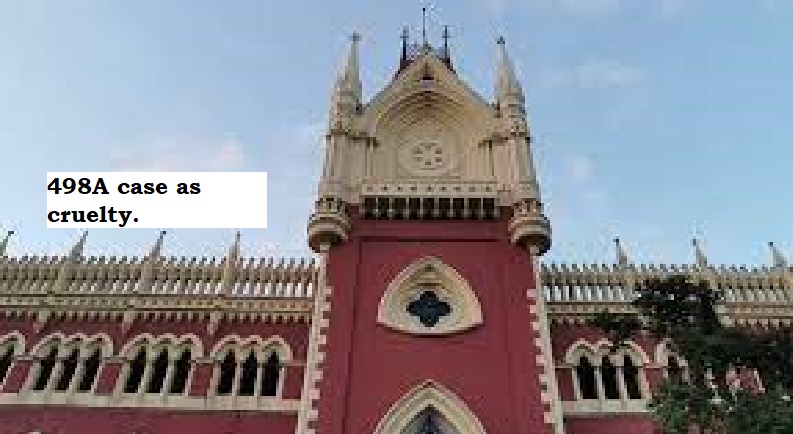


The recent decision by the Calcutta High Court regarding a divorce case has brought attention to the nuanced aspects of cruelty within marital relationships. The case involved a husband seeking dissolution of marriage, asserting that his wife's false accusations under Section 498A of the Indian Penal Code (IPC) constituted mental cruelty, a valid ground for divorce under the Hindu Marriage Act (HMA).
In the ruling, a division bench consisting of Justice Harish Tandon and Justice Madhuresh Prasad emphasized the significance of a wife making baseless allegations against her husband and his family. Section 498A of the IPC deals with cruelty towards a married woman, including harassment for dowry. The court held that the act of lodging a false criminal case under this section, coupled with the subsequent acquittal of all accused, could not be ignored when considering the appeal for divorce on merit.
An interesting revelation surfaced during the proceedings – the wife, in her testimony, explicitly stated that she initiated the legal action under Section 498A/406 of the IPC based on the advice of her advocate. The court took note of this admission, underlining the orchestrated nature of the legal proceedings. The fact that the case ended with the acquittal of all accused, including the husband, further strengthened the argument that the false accusations were not only damaging but also amounted to an element of cruelty.
The high court was hearing an appeal filed by the wife against the trial court's decision to grant the husband's plea for dissolution of marriage on grounds of mental cruelty and desertion. The husband had presented a case alleging his wife's quarrelsome behavior, financial demands, and a desire for the transfer of property owned by his father. Additionally, he claimed that she neglected her household responsibilities and abandoned him after giving birth to their child.
The wife countered these allegations, asserting that the husband failed to provide proper care during her pregnancy, leaving the financial burden on her father. She further claimed that the husband did not visit her and the child after childbirth. However, her testimony was called into question during the trial when it was revealed that the in-laws had actively supported her studies and provided assistance during her pregnancy.
The court carefully considered the evidence and found that the in-laws had indeed supported the wife's education and attended to her needs during pregnancy. This contradicted her earlier claims of neglect. Moreover, during the pendency of the appeal, the wife admitted to filing the proceeding under Section 498A of the IPC against her husband and in-laws solely based on her lawyer's advice. This admission played a pivotal role in the court's determination of cruelty.
The judges observed that such actions by the wife, leading to legal proceedings and subsequent hardship for the husband and his family, amounted to cruelty within the context of marital relations. The court acknowledged the emotional distress, legal troubles, and the need for the accused to surrender, obtain bail, and face trial – all stemming from the false accusations initiated by the wife.
In conclusion, the Calcutta High Court's decision highlights the complex nature of cruelty in matrimonial cases. The deliberate filing of false cases, especially under Section 498A of the IPC, can have severe consequences and be considered a form of cruelty leading to the dissolution of marriage. The ruling underscores the importance of carefully evaluating the circumstances and evidence surrounding such cases to ensure a just and fair resolution in divorce proceedings.
TAGS: Divorce Section 498A IPC Cruelty Dissolution of Marriage Hindu Marriage Act (HMA) False accusations